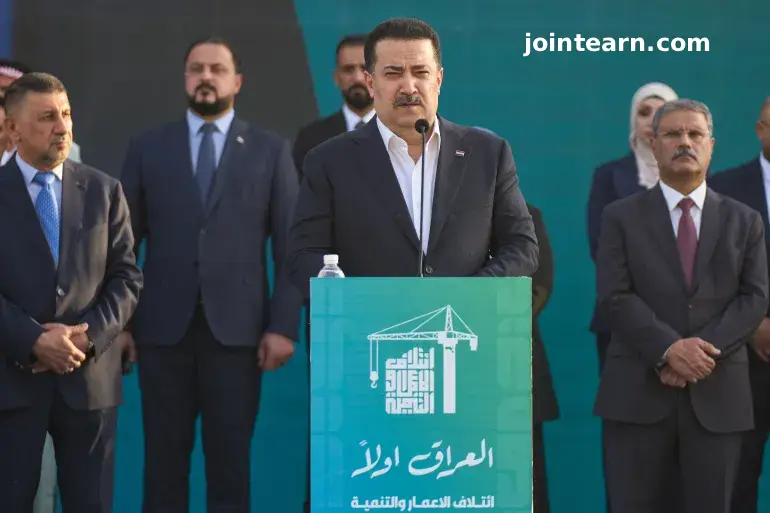
Iraq’s Parliamentary Elections Begin Amid Apathy and Uncertainty
Baghdad, Iraq — Polling stations across Iraq opened on Tuesday morning for parliamentary elections that many citizens view with deep skepticism. Despite relative calm in the country, voter apathy and disillusionment with the political elite dominate the national mood.
Voting began at 7 a.m. local time (04:00 GMT), with nearly 21 million Iraqis eligible to cast their ballots across 4,501 polling centers, according to the Iraqi News Agency (INA).
The vote, Iraq’s sixth national election since the 2003 US-led invasion that toppled Saddam Hussein, comes as the country tries to balance regional influence from both the United States and Iran.
However, many Iraqis feel that elections have done little to improve living standards or end entrenched corruption.
“Every election, they promise reform and stability, but nothing changes,” said one voter in Baghdad. “This system only serves politicians, not the people.”
Millions Eligible to Vote, but Turnout Expected to Hit Record Low
More than 7,750 candidates, including nearly 2,500 women, are competing for 329 parliamentary seats. Iraqi law reserves 25 percent of seats for women and nine seats for minority groups.
But expectations are low. Analysts predict that voter turnout could fall below 40 percent, which would mark the lowest participation rate since 2003.
Disillusionment runs deep after years of political gridlock, economic struggles, and allegations of election fraud.
The Independent High Electoral Commission said polls will close at 6 p.m. (15:00 GMT), with preliminary results expected within 24 hours.
Familiar Faces Dominate Iraq’s Political Landscape
The elections feature few new contenders. Instead, established political figures continue to dominate, reflecting Iraq’s enduring power dynamics.
Prime Minister Mohammed Shia al-Sudani, who took office in 2022 with backing from pro-Iran Shia factions, is widely expected to win a second term.
Other influential figures include:
- Nouri al-Maliki, former prime minister and veteran Shia leader.
- Ammar al-Hakim, cleric and leader of the National Wisdom Movement.
- Mohammed al-Halbousi, the former parliament speaker and key Sunni politician.
By contrast, powerful Shia cleric Muqtada al-Sadr, whose movement dominated the 2021 vote, is boycotting the election, calling it “flawed and meaningless.”
His absence removes a major force that previously shaped Iraq’s political direction.
Power-Sharing System Limits Political Transformation
Since 2003, Iraq’s post-invasion constitution has divided political power along sectarian lines:
- The prime minister must be a Shia Muslim,
- The speaker of parliament a Sunni Muslim, and
- The presidency reserved for a Kurd.
This arrangement, intended to ensure representation, has instead entrenched sectarian politics and allowed corruption to flourish, critics say.
“Until Iraq breaks from the sectarian quota system, no true reform can take place,” said an Iraqi political analyst in Najaf.
Al-Sudani’s Balancing Act: Between Washington and Tehran
Throughout his tenure, Prime Minister Mohammed Shia al-Sudani has carefully managed Iraq’s fragile geopolitical position, maintaining relations with both the US and Iran while attempting to protect Baghdad’s sovereignty.
Despite waning regional influence, Iran remains a dominant power broker in Iraq, supporting armed factions and political blocs that shape national policy.
At the same time, the United States continues to maintain a military presence and diplomatic leverage in Baghdad, pressing for disarmament of pro-Iran militias and greater independence from Tehran’s influence.
Earlier this year, US envoy Mark Savaya urged Baghdad to resist “malign interference” by Iranian-backed groups.
“Iraq’s stability depends on freeing its institutions from foreign control,” Savaya stated in remarks last month.
Regional Stakes: Iraq as a Geopolitical Balancing Ground
The outcome of Iraq’s 2025 elections holds significance beyond its borders.
For Iran, Iraq remains a crucial regional ally and economic partner amid the ongoing war in Gaza and regional instability.
For Washington, Iraq is a frontline state in countering Iran’s influence and ensuring the safety of remaining US forces in the region.
Observers warn that continued factionalism could weaken Baghdad’s position internationally and delay progress on reconstruction, infrastructure, and foreign investment.
Voter Sentiment: “Nothing Will Change”
Across major cities, reports indicate a subdued atmosphere at polling centers. Many voters say they have lost trust in Iraq’s political system, citing years of failed reforms, unemployment, and poor public services.
“The same names, the same promises — we’ve heard it all before,” said Layla Hassan, a teacher in Basra. “We need accountability, not slogans.”
Election monitors from the United Nations and regional organizations are overseeing the vote, hoping to maintain transparency and prevent violence.
The Road Ahead: Can Iraq Rebuild Political Trust?
Regardless of who wins, Iraq’s next government faces daunting challenges — from restoring public faith in democracy to curbing corruption and managing competing regional interests.
Analysts believe that unless leaders deliver tangible improvements, voter apathy and discontent will continue to grow, further eroding Iraq’s fragile democracy.
“Iraq’s elections are less about change and more about survival of the existing system,” said a Baghdad-based journalist. “Real reform will require courage, not just consensus.”
Key Takeaways
- Iraq holds its sixth parliamentary election since 2003 amid low public trust.
- Prime Minister Mohammed Shia al-Sudani seeks a second term with strong Shia bloc backing.
- Muqtada al-Sadr’s boycott may weaken voter turnout and Shia representation.
- US and Iran remain key influencers in Iraq’s political landscape.
- Turnout may drop below 40 percent, signaling deep voter disillusionment.


Leave a Reply